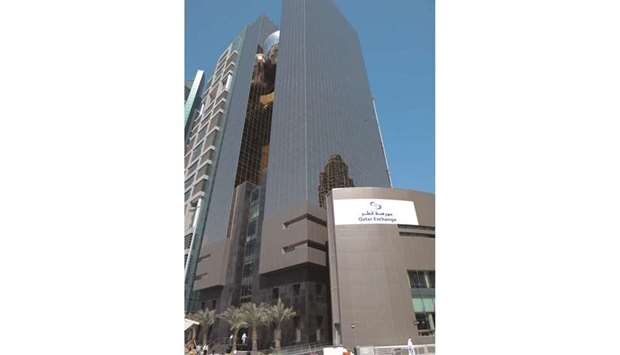Qatar's securities market is in the process of shortening the settlement period to 'T+2' from the present 'T+3", a move that could help investors receive their cash faster and substantially reduce the operational and counterparty risks.
The settlement cycle has remained at trade date plus three business days (T+3) in Qatar, where the global fund managers have been eyeing the fastest growing economy due to its strong macro fundamentals, especially after Doha unveiled its plans to enhance its liquefied natural gas production to 126mn tonnes per annum by 2027, which offered indirect benefits to the private sector as well.
The move to 'T+2' cycle will happen after completing the necessary testing procedures, Qatar Stock Exchange chief executive Rashid bin Ali al-Mansoori said, confirming the move to shorten the settlement cycle.
The proposed move comes in line with the international markets and would enable dealers to withdraw cash from two days after completing the sale instead of three days, he said.
Market sources said having ‘T+2’ settlement cycle, in line with global markets, ensure seamless international fund management, which in turn, helps in enhancing the competitive edge of the Qatari capital market.
In 2014, most markets in Europe transitioned to T+2 settlement cycle, while the settlement cycle in the US is T+2 for equities and corporate bonds and T+0 or T+1 for the money market instruments and government securities, and Hong Kong has 'T+2' cycle.
A key industry demand has been to shorten the settlement cycle in view of Qatar having the necessary enablers such as the market and technological infrastructure.
A cost-benefit analysis of the shortened settlement cycle has found that major bourses across the world favoured shortened settlement period as it helped reduce clearing and settlement risk as well as the overall costs for the securities' industry, thus making the market safer.
The significant improvements in straight through processing and the underlying technology over the last few years call for a shortened settlement cycle, which at this point of time greatly improves volume and liquidity in the system, the sources said, pointing out that the introduction of exchange-traded funds (ETFs), including Qatar’s first Islamic ETF, in March 2018 was met with high international demand.
The shortened settlement cycle would help improve market efficiency as the reinvestment becomes faster, they said, adding the reduction in the initial margins and the shortened settlement cycle are ought to improve the liquidity.
Qatar's capital market has been witnessing steady stream of reforms including stock split and raised foreign ownership limits, as investors, including overseas, pin hopes on the country’s economy.
Qatar’s expected 5% growth this year is in contrast to an estimated 4.3% fall in 2020 on account of Covid-19, the International Monetary Fund said, and the forecasted real economic growth in 2021 would be better than the 4.7% averaged for the Middle East, North Africa and Pakistan region.
The settlement cycle has remained at trade date plus three business days (T+3) in Qatar, where the global fund managers have been eyeing the fastest growing economy due to its strong macro fundamentals, especially after Doha unveiled its plans to enhance its liquefied natural gas production to 126mn tonnes per annum by 2027, which offered indirect benefits to the private sector as well.
The move to 'T+2' cycle will happen after completing the necessary testing procedures, Qatar Stock Exchange chief executive Rashid bin Ali al-Mansoori said, confirming the move to shorten the settlement cycle.
The proposed move comes in line with the international markets and would enable dealers to withdraw cash from two days after completing the sale instead of three days, he said.
Market sources said having ‘T+2’ settlement cycle, in line with global markets, ensure seamless international fund management, which in turn, helps in enhancing the competitive edge of the Qatari capital market.
In 2014, most markets in Europe transitioned to T+2 settlement cycle, while the settlement cycle in the US is T+2 for equities and corporate bonds and T+0 or T+1 for the money market instruments and government securities, and Hong Kong has 'T+2' cycle.
A key industry demand has been to shorten the settlement cycle in view of Qatar having the necessary enablers such as the market and technological infrastructure.
A cost-benefit analysis of the shortened settlement cycle has found that major bourses across the world favoured shortened settlement period as it helped reduce clearing and settlement risk as well as the overall costs for the securities' industry, thus making the market safer.
The significant improvements in straight through processing and the underlying technology over the last few years call for a shortened settlement cycle, which at this point of time greatly improves volume and liquidity in the system, the sources said, pointing out that the introduction of exchange-traded funds (ETFs), including Qatar’s first Islamic ETF, in March 2018 was met with high international demand.
The shortened settlement cycle would help improve market efficiency as the reinvestment becomes faster, they said, adding the reduction in the initial margins and the shortened settlement cycle are ought to improve the liquidity.
Qatar's capital market has been witnessing steady stream of reforms including stock split and raised foreign ownership limits, as investors, including overseas, pin hopes on the country’s economy.
Qatar’s expected 5% growth this year is in contrast to an estimated 4.3% fall in 2020 on account of Covid-19, the International Monetary Fund said, and the forecasted real economic growth in 2021 would be better than the 4.7% averaged for the Middle East, North Africa and Pakistan region.


